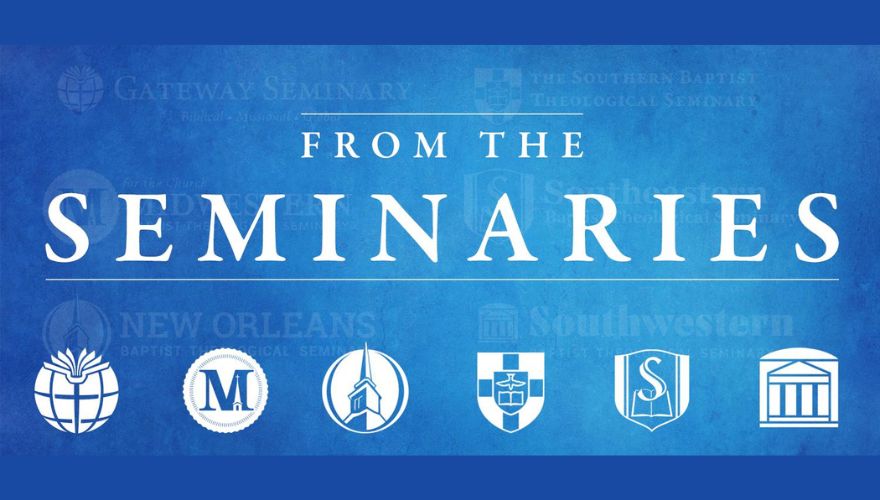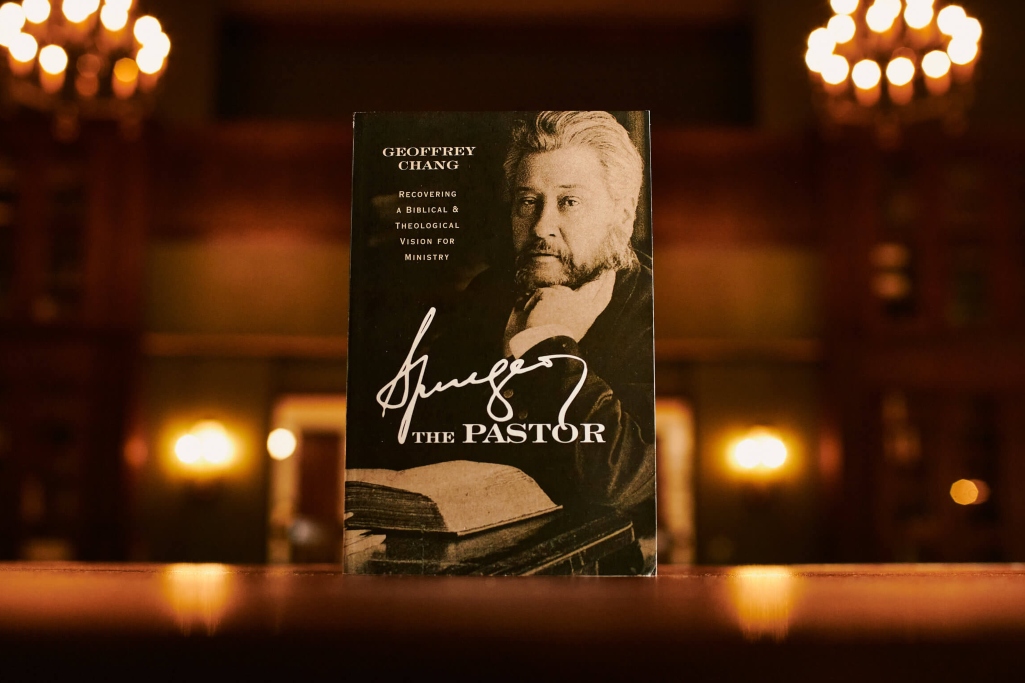
Rhyne Putman to teach theology at SEBTS
By Mary Asta Mountain, SEBTS
WAKE FOREST, N.C. — Southeastern Baptist Theological Seminary (SEBTS) and Judson College have announced the addition of Rhyne Putman as professor of theology.
“Rhyne Putman is an accomplished scholar, devoted pastor, skilled administrator and experienced professor,” said Provost Scott Pace. “He brings a unique combination of gifts to the classroom and our campus that will have a profound impact on our students and help us equip students to serve the church and fulfill the Great Commission. I couldn’t be more thrilled to welcome him to the Southeastern faculty.”
Putman has taught for the past 15 years at New Orleans Baptist Theological Seminary (NOBTS) and has served for the past five years at his undergraduate alma mater, Williams Baptist University, first as associate vice president for academic affairs and then as vice president of academic affairs. He has also served in a number of pastoral roles over the past 20 years — most recently as senior pastor of Mt. Zion Baptist Church in Walcott, Ark.
Putman received his master of divinity, master of theology and doctor of philosophy from NOBTS. His doctoral studies studies majored in systematic theology with a minor in New Testament, with his dissertation titled “Postcanonical Doctrinal Development as Hermeneutical Phenomenon.”
“My family and I are excited to be part of a place where God has done — and continues to do — great work,” Putman said. “Southeastern has a long history of sending out pastors, missionaries and church leaders who do great things for the kingdom, and I’m eager to contribute to that mission alongside a gifted team. I believe God has called me to equip equippers who will make a difference in local churches and across the globe. I was blessed with incredible seminary professors and administrators at NOBTS who poured into my life, and it’s a joy to continue that legacy with a new generation of students in a new place.”
As the son of a Southern Baptist pastor, raised within the church community, Putman’s passion for God’s kingdom and for His Word grew in him from an early age.
“That love matured over the years,” he recalled, “especially in middle school, when I sensed a call to vocational ministry and began studying theology and apologetics.
“One of the great joys of my life was studying the Bible academically for the first time at Williams Baptist University and later at NOBTS. I gravitated toward systematic theology because it helped me see the big picture — how Scripture, doctrine and discipleship fit together. I conceive of theology as organized reflection on God’s self-revelation in Scripture for the purpose of making disciples,” explained Putman. “I believe that’s exactly what Jesus had in mind when He said, ‘Go, therefore, and make disciples of all nations … teaching them to observe everything I have commanded you.’”
Putman has published multiple theological works in the past years, including “When Doctrine Divides the People of God,” “The Method of Christian Theology: A Basic Introduction” and “Conceived by the Holy Spirit: The Virgin Birth in Scripture and Theology.”
Allen addresses life, doctrine in newest installment of ‘Letters to My Students’
By MBTS Staff
KANSAS CITY, Mo. — Midwestern Baptist Theological Seminary (MBTS) celebrated the June 3 release of President Jason K. Allen’s latest book, “Letters to My Students, Volume 3: On Life and Doctrine,” with B&H.
Focusing on 10 key doctrines and disciplines, Allen’s new book offers wisdom to current and aspiring ministry leaders for guarding the integrity of their gospel witness in their personal, spiritual and pastoral lives.
“In this book, I’m targeting our current ministry moment and the challenges before those who serve Christ’s church,” Allen writes in the introduction. “These doctrines are key for a faithful ministry and for our own faithfulness in this present ministry age.”
The new volume follows two previous installments in Allen’s “Letters to My Students” series: “On Preaching,” published in 2019, and “On Pastoring,” published in 2021. “On Life and Doctrine” takes its title from 1 Timothy 4:16, where Paul instructs the young pastor, Timothy, “Pay close attention to yourself and to your teaching.”
Allen noted the priority of this charge for ministers today, who face various pressures from contemporary culture and the realities of ministry in a fallen world.
Echoing Paul’s promise in 1 Timothy 4:16, Allen points to the eternal impact of guarding one’s life and doctrine, writing, “Rightly knowing, believing, and proclaiming the gospel is essential for salvation, on both the teaching and receiving end.”
The first five chapters highlight the foundational importance of doctrine, addressing key doctrines including Scripture’s inerrancy and sufficiency, Christ’s exclusivity, God’s sovereignty and man’s nature. In these chapters, Allen shows the centrality of these doctrines to the Christian faith and warns against the dangers of compromising them.
“Ministers are not to just live out these biblical truths but are to articulate and advocate them,” Allen writes. “To do so is to love our flock—and our neighbor. Much depends on the minister’s faithfulness in this regard: the integrity of our witness, the wholeness of our families, the strength of our churches, and, more broadly, the health of our society.”
The remaining five chapters focus on matters of practical wisdom to help pastors and ministry leaders protect their character and carry out their God-given responsibilities at home and at church. In these chapters, Allen addresses spiritual disciplines, shepherding one’s family, cherishing the local church, leading oneself and enduring in preaching.
Reflecting on the benefit of such practices, Allen writes: “We don’t just want to survive long-term or endure in ministry long-term, we want to flourish. We want to be found faithful.”
Allen’s “Letters to My Students” series was inspired by Charles H. Spurgeon’s book “Lectures to My Students,” which compiles ministry wisdom that Spurgeon originally gave to the students at his pastor’s college during weekly lectures. Allen commends Spurgeon’s book for its formative influence on Allen’s own preparation for ministry.


